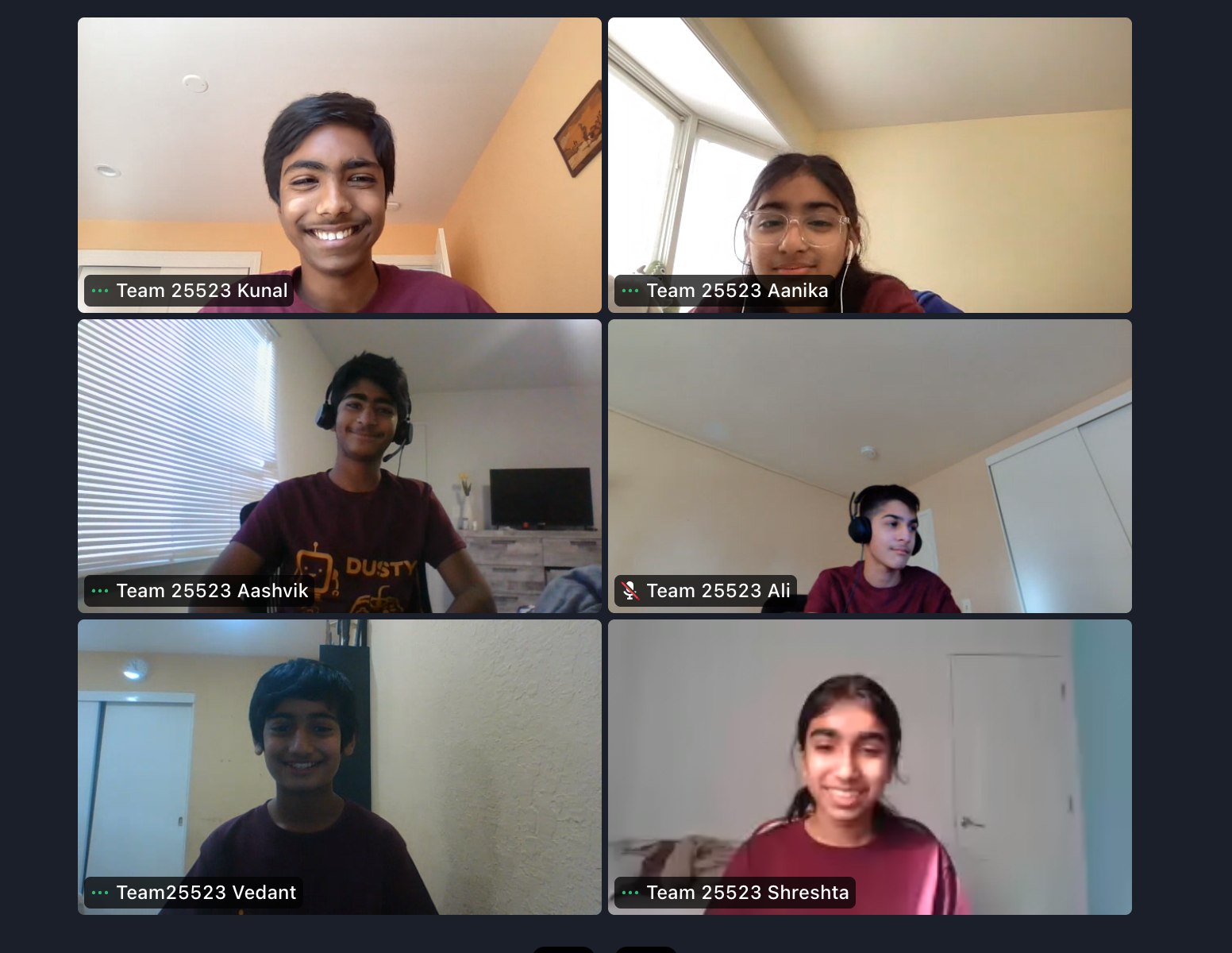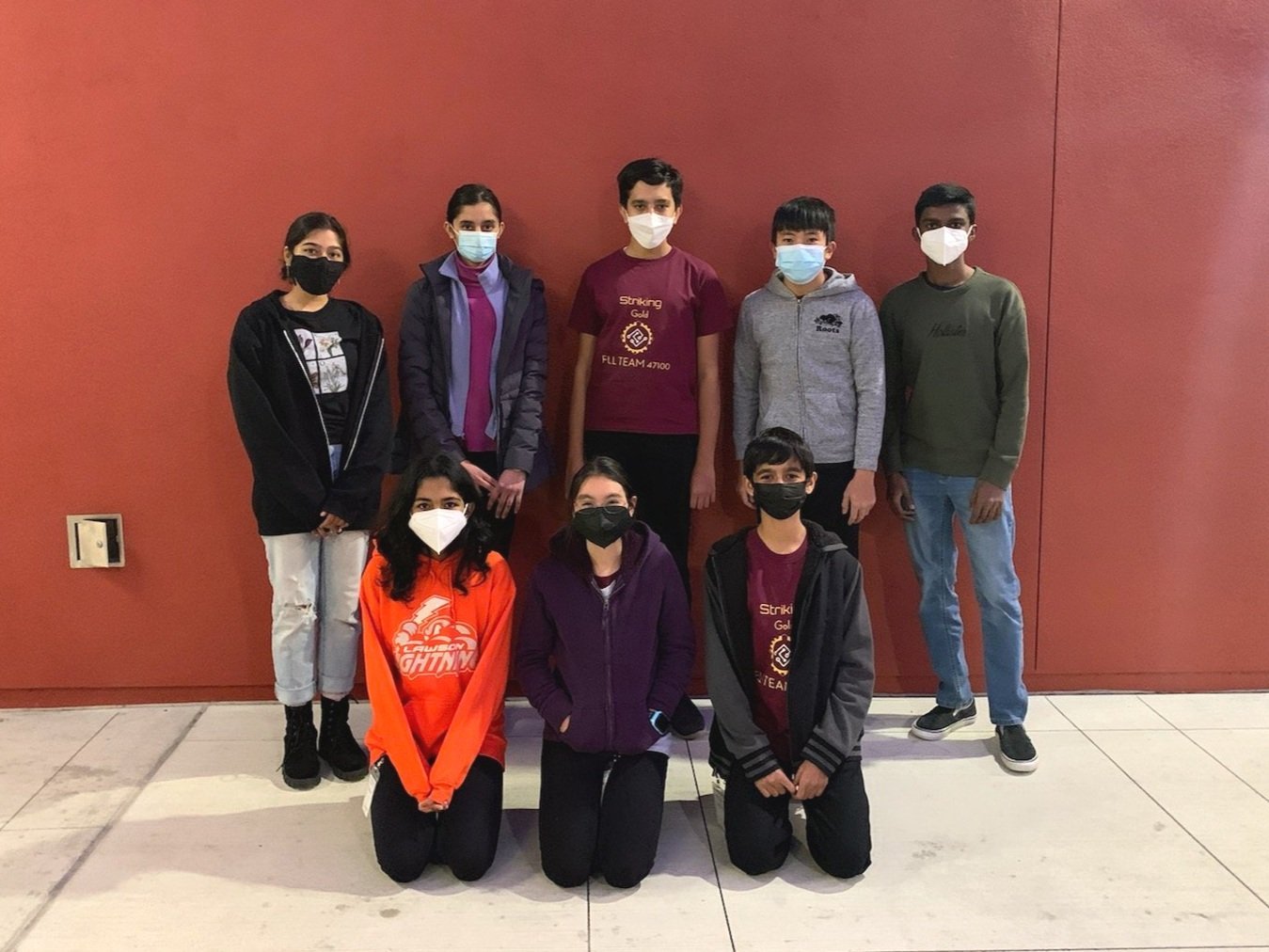Cupertino Robotics FLL Update 2021-22
First Lego League, more commonly known as FLL, is an annual robotics competition hosted by FIRST. The competition’s goal is to introduce middle school students to the essentials of robotics and to teach them about FIRST’s ideals.
Similar to previous years, this year CHS has four FLL teams - 25523, 25524, 32253, and 4950. Each team consists of about 7 students who worked over a span of four months. Each team worked together to develop their core values, construct a robot, and produce a successful innovation project that accomplished the 2021-2022 challenge. The Innovation project requires the teams to identify an issue in their communities and propose a solution for it. The robot is designed by each team to solve a variety of missions as part of the annual challenge. All teams worked hard and were able to create a robot and project they were proud of.
Team 25523 spent their time creating a model to solve the issue of the lengthy package delivery times in our present delivery system. The solution they came up with was an environmentally friendly hoverboard that efficiently delivers packages to recipients at quicker speeds. For the team’s robot, the team decided to focus on tackling the mission they believed would give them the most amount of points in the least amount of time. For the Cargo Connect robot game, Team 25523 was able to complete 5-7 missions and gained their highest score of 205 points. They hoped to attempt more missions but regardless they are proud to have met their goals. Whether it was learning as a team or spending time tackling the challenges, Team 25523 felt they were able to create a strong structure for teamwork and therefore learn that coordination in a team is the most important factor of teamwork.
Approaching the challenge in a different light, Team 25524 focused their innovation project on the unfortunately common theft of delivered packages. They addressed theft and formed a solution that could ultimately assist in preventing theft of packages. In the robot game, Team 25524 created a robot that was able to meet all their goals. As they originally planned, Team 25524 successfully completed 3 missions. Though they felt that they could have had the chance to improve their code and extend their goal in the chance that the season was longer, the team was still incredibly joyful knowing they were able to meet all their goals.
Unlike the other teams, Team 32253 innovated a solution for the miscommunication and loss of packages as they are on their way to the recipient. Their solution formed around the basis of both, the deliverer and recipient, tracking packages during their delivery. Aiming high, Team 32253’s goal was to complete 9 missions in total. Nearly reaching that goal, the team built and coded a robot to achieve 8 missions and get up to their highest score, 235 points. In the case that the season was longer, Team 32253 hoped to restructure their runs so that they were more time efficient and allowed the robot to accomplish additional missions. Regarding the build of their robot, Team 32253 is proud of what they were able to come up with but they believe that if they were given the time, they would be able to advance their design into a further efficient design.
Last but not least, Team 4950 chose to develop a solution to increase efficiency in the delivery of cargo and packages. They worked to design a successful model to solve that issue. In regards to their robot, they spent their time designing and coding their robot while aiming to complete 5 different missions. Though they were not able to meet that goal, they were still able to gain a personal best during the competition at 170 points. As they worked together for months, they slowly learned that communication was extremely important and wished they had worked more on improving the communication within the team. If they were given a longer season they planned to improve their time management and advance their game plan.
The backbone of each of the FLL teams is their youth mentors. Youth mentors guided and educated the team members as they progressed through the season. As essentially a part of the teams, every youth mentor had an enlightening experience themselves as well. Youth mentors found joy in getting to spend time with the kids and sharing knowledge with each other. Being able to form a bond within the team and with the other youth mentors serves as an important takeaway from the season. In the end, the youth mentors were able to see their hard work pay off as their team presented the team’s accomplishments to the judges in the tournament. Though the youth mentors faced challenges when it came to gaining and holding the attention of the team members, their perseverance paid off when the teams presented all of what they learned throughout the season. Just like the team members, the youth mentors gained many skills from their experience. Most were able to understand the true importance of patience and how vital it is to play to each team member's strengths.
Every student working to make this year’s FLL season worthwhile was rewarded with a plethora of knowledge. Each team put a significant amount of work into their innovation project and their robot which was able to complete various missions in the Cargo Connect game. Though each team had a different approach and goal, they were all able to put in the work to try to accomplish their goals. Every participating member left the season knowing that they had learned many new skills and were able to form everlasting bonds.

